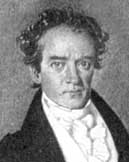Biographies
 Stephen F. Austin
Stephen F. Austin Stephen F. Austin
Stephen Fuller Austin was the man most responsible for beginning the sequence of events that eventually led to Texas independence and subsequent annexation by the United States, sparking the war with Mexico. After spending his youth a series of failed family business adventures, Austin headed to New Orleans to study law with former U.S. Congressman Joseph Hawkins.
Stephenís father, Moses Austin, still recovering from his financial reversals, went to Spanish Texas to sell authorities there on a scheme to move three hundred American Catholic families Spainís troubled northern frontera. Although successful, Moses Austin died before he could see the plan implemented, and son Stephen took up the cause. At age thirty-one, Austin had become the first Anglo empresario - land and immigration agent - in Texas.
Austin displayed a genius for the work, and successfully weathered the storms of the Mexican independence movement with his immigration contracts intact. His first 300 U.S. families had arrived by 1824, and Austin went on to sign other agreements, joined by some forty competing empresarios. Collectively, these agents lured 20,000 immigrants to Texas, quickly overwhelming the native Spanish-speaking population by nearly ten-to-one.
As tensions increased between the newcomers and Mexican officials, Austin attempted to play mediator, but was instead imprisoned by Mexican caudillo (military strongman) Antonio Lopez de Santa Anna. When released, Austin supported calls for an independent Texas. When warfare broke out in 1835, Austin held military command briefly before heading to the U.S. seeking financial backing for the insurgency. He returned to Texas after revolutionaries had defeated Santa Anna. The war catapulted a relative newcomer to Texas, Sam Houston into the presidency of the new nation in 1836. Austin died later that year from a disease most likely contracted while languishing in a Mexican prison, fully aware that he had been politically eclipsed.










